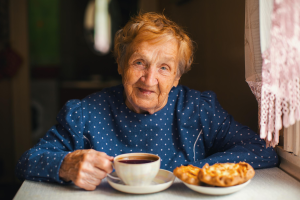When you hear the word Widow, what comes to your mind?
Throughout history, widows have been considered old, fragile, poor, weak, contagious, helpless, and hopeless. Even though many Widows experience these conditions, it is an unfair label. A widow is not infectious and does not have a disease. She is not a leper and should not be ignored.
The very opposite command is for the Christian. The Bible commands Churches in James 1:27 not to neglect the Widows and Orphans.
In the 1st century, women were in low regard and not respected. Only within the past half-century have women been thought of with some equality. Yet, despite this newfound respect for women, the Widow is still overlooked in many areas.
In our couples world, men and women help to support one another. They enjoy the security of companionship, finances, family, etc.
When this union is interrupted by the loss of the spouse, many of those comforts and securities disappear.
The statistics report that 75% of Widows lose their friendships after losing their husbands.
The average Widow is 59 years old. They have a 30% higher death rate after losing their husband.
The poverty rate among Widows is three to four times higher than elderly married women of the same age.
These documented facts are the stereotype of many widows.
One moment they enjoy activities with their spouse and friends, then the next moment, her world changes with the loss of support, friends, and the world she knew.
The loss of a spouse is the number one stressor in life. It is like losing one-half of your body. It feels like walking around in circles on one leg.
So, grieving should never be rushed, for it is part of the loss process
The griever will experience many emotions such as fear, loneliness, depression, stress, anxiety, loss of dreams, and losing their lifelong mate.
These and more are normal feelings, so the Widow should not be labeled an outcast.

They are experiencing the most traumatic, stress-filled event in life, with unbearable loneliness and fear. Yet, Widows are still remarkable women. They need fellowship, support, help, kindness, and the need to talk and not lose hope.
Some Widows experience financial hardships, while others are financially secure. Many Widows are strong, self-reliant, and independent women capable of caring for themselves.
Others need a helping hand and may not be fortunate to be left with financial resources to care for themselves.
In this case, the church cares for the Widow and meets her individual needs and support. Neither should the Widow, even if they are capable of caring for themselves.
The Widow is the woman she was before she lost her spouse, but now without her companion, helper, support system, dream maker, and mate. Many times they need our help.
When a widow needs help and has no family to help, the church steps in to help.
Like all of us, Widows are human beings who need fellowship and connection.
Women are a unique creation of our Heavenly Father. He gave each of them an amazing Spirit. Each Widow is still that remarkable woman God created before she became a widow.
God provided His Church to come to the aid of those Widows who need help and have no means of caring for themselves.
They should be loved, respected, and cared for by loving brothers and sisters who are the hands and feet of Jesus. Some Widows can care for themselves but need the continued support of loving friends who care.
All the emotions and troubles mentioned in the opening paragraph did not diminish or demote the women who have become Widowed. The Widow is one of God's creations who is so unique that He mentioned them by name in His Word.